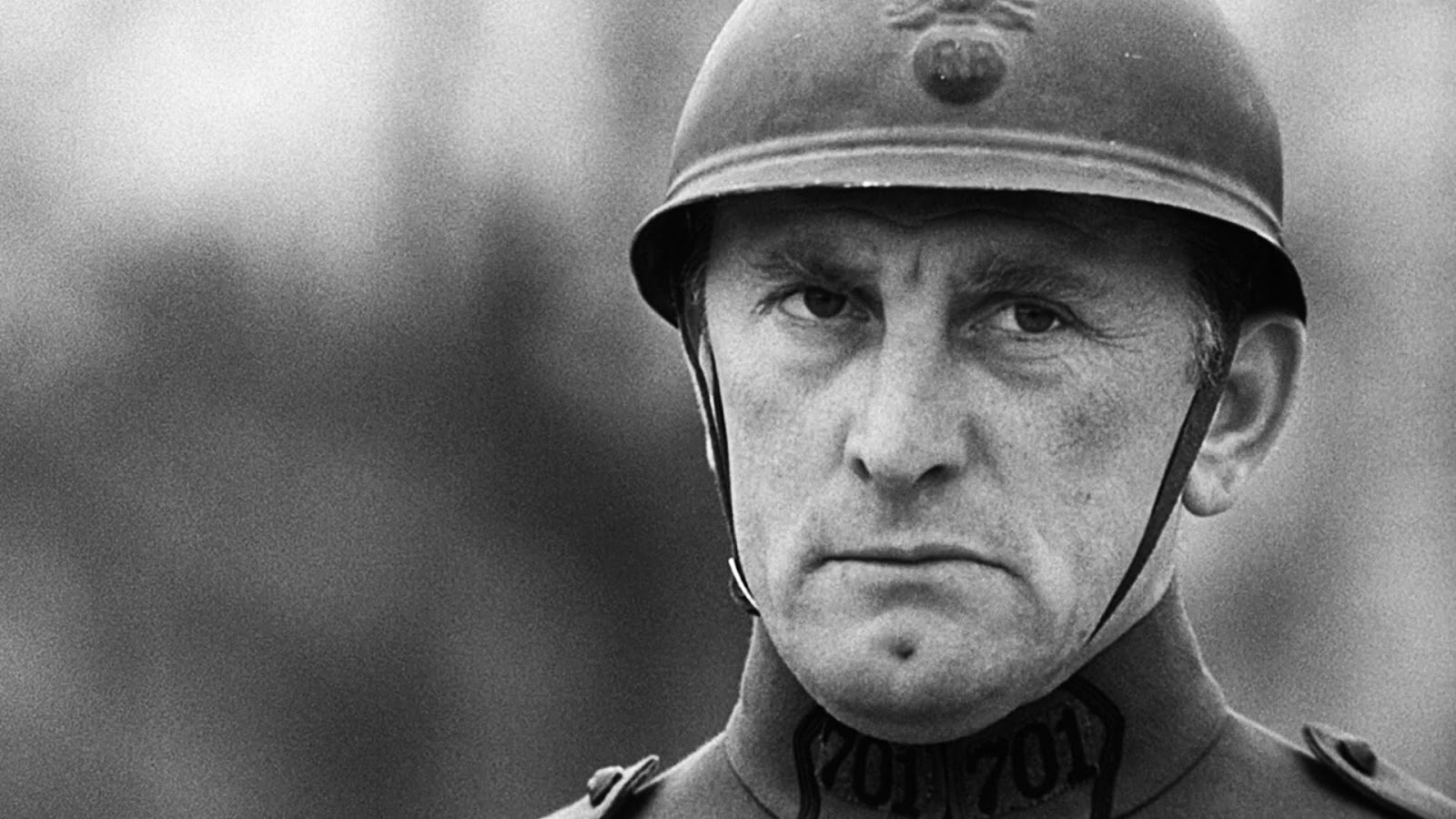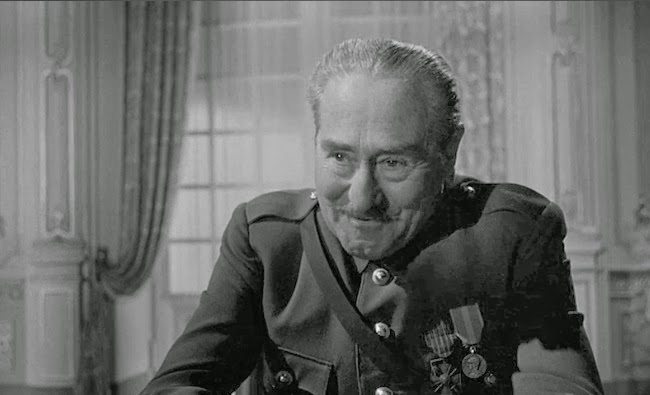
Stanley Kubrick’s 1957 film The Paths of Glory was a limited success at the time – it just about broke even at the box office – and was initially highly controversial. It was banned in France for twenty years, and several other European countries refused to show it as a gesture of solidarity with France. It was also banned in all American military establishments. So, why the fuss?

The film, based on a book by American writer Humphrey Cobb, focuses on a section of The Western Front in 1916 held by the French. Although it is never mentioned in the film, we assume that the action takes place around Verdun, the most costly single engagement in a war that chewed up men’s lives like a meat grinder. The 701st Regiment are ordered to attack an impregnable German position known as ‘The Anthill’. General Miraud, (George Macready, above) after initially protesting to his superior that the attack would be suicidal, changes his mind after being offered promotion.

Colonel Dax (Kirk Douglas, above) is the officer who will lead the attack. He is dubious about the prospects, but obeys the order. The attack is an unmitigated disaster. German shellfire halts progress in No Man’s Land, while one company is unable even to leave the trench, such is the ferocity of the bombardment. In a rage, Miraud orders his artillery to fire on his own lines in order to force the men to attack.
Miraud feels that his own honour has been impugned, and, after removing the regiment out of the line to a chateau some miles away, orders that 100 of the surviving men be arrested and charged with cowardice. The scheming General Broulard ( Adolphe Menjou, below) suggests that just three men will be enough pour encourager les autres, and Dax is forced to ask three of his company commanders to select three sacrificial victims.

Three men are chosen: Corporal Paris (Ralph Meeker) is selected because his superior officer, Lieutenant Roget, needs to silence him in case he exposes Roget’s cowardice. Private Arnaud’s name is simply drawn out of a hat, while Private Ferol (Timothy Carey) is a deeply unpleasant individual who, it seems, ‘has it coming’.
The three men are tried in a mockery of a judicial process, despite an impassioned defence by Dax, who was a lawyer in civilian life. They are sentenced to death. Dax has one last card to play. He has a written testimony that Miraud has ordered gunfire down on his own men, but it is dismissed by Broulard. The men are duly executed, with one of them, Arnaud, strapped to a stretcher after being seriously injured in a fight with his guards.
Broulard and Miraud are enjoying a leisurely breakfast in luxurious surroundings, when Dax is invited to join them. He shares his information about Miraud’s order to shell his own trenches. Miraud is told that he will face and enquiry, and then storms out voicing a sense of betrayal. Broulard congratulates Dax on a very clever plan to secure his own promotion. Dax finally loses his temper at this interpretation of his motives and rages at his superior officer.
Back at the chateau, the surviving members of the 701st Regiment are in an estaminet, drunk and reckless. The proprietor pushes a young German girl onto the makeshift stage and forces her to sing. She hesitantly sings an old song. “Der treue Husar” (The Faithful Hussar). The men’s mockery turns to empathy and then grief, as they join in with the song. Outside, Dax has just been given the order that the 701st are to return to the front line with immediate effect.
In Part two of this feature, I will explore the differences between the book and the film, and attempt to understand what Cobb and Kubrick were trying to say about this tragic episode in European history.











Leave a comment